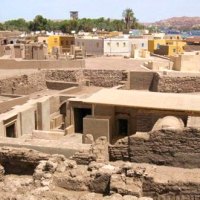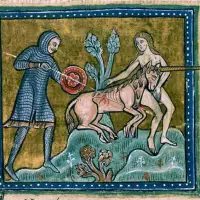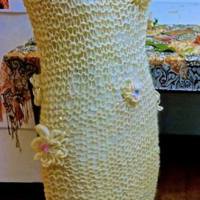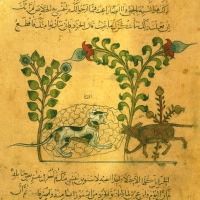Recipe at the end of this blot > sautéed Ndagala (whitebait) in tomato sauce.
July and August are the months of engagements and marriages in Burundi and these are almost always accompanied by feasts that are as lavish as the families can organize.
This is the first of 3 blogs on the topic and a celebratory recipe will be given at the end of the blogs.
Why July and August? First, we have two ‘seasons’ – wet and dry. Temperatures vary more between night and day than they do between wet and dry seasons, although there is higher humidity during the rainy months, from mid-September through May or June, than there is during the dry season, from approximately June through September.
In the middle of the rainy season – December/January – there is also a ‘little’ dry season, following which certain crops can be planted. But the majority of crops are planted just prior to the rains in September and then agricultural work continues throughout the rains. Hence, these months are very busy for the farmers.
The second reason that celebrations take place during July and August: The dry season is a time to relax a bit, to enjoy the fruits of the harvest, and to put away money from the crops for important expenses – especially education of the children – and also for celebrations, especially engagements and marriages.
It is also a time of making sorghum beer and banana wine, which especially for women in rural areas are important money-earners – indeed, most people have their favorite producer of these beverages. Sorghum beer is traditionally consumed as part of engagement or wedding ceremonies.

Banana beer is frequently on sale in rural markets and is an important micro-enterprise for women who run a brewing enterprise. The goal is a refreshing drink during the heat of day – not a high alcohol item. The seller is pouring beer into a gourd, which the customer will drink with a straw that is generally made from a local reed. I took this photo at a local market in northern Burundi.
Engagements and marriages almost always take place on Saturday afternoon or evening. These are the most important family ceremonies and even the very poorest will save for months – and may borrow heavily if it has been a bad year for crops – in order to organize the largest affair possible.
Whether photocopied or specially designed, invitations are de rigueur and are sent to all possible friends and family. As a matter of fact, I have received two this past week from local folk (26 June 2014), both of which are scheduled for August.

Invitation for the wedding of a friend – whose family is well off. Traditional themes involving drums and long-horned, Ankole cattle are featured in this lovely drawing, together with a traditional basket of food presents for the newly weds who are attired in traditional garb.
It is common to receive several invitations for celebrations that take place on the same day – and in this case, people will drop in from one ceremony to the next throughout the afternoon and evening. These are considered the major social events of the season.
The wedding includes both civil and religious ceremonies that take place in the morning or afternoon. Thereafter, the couple with their guests proceed to the place of celebration, which may be a home, a hotel, or one of the many places that specializes in organizing these celebrations. If finances are sufficient, the party travels in a motorcade, with a pickup truck in front of the convoy of vehicles, on which someone with a video camera takes pictures of the procession.
Depending on wealth of the families, the celebration can include – in addition to drinks – dancers, drummers, singers and perhaps a separate meal at a later time, for specially invited guests.
Who pays? The groom and his family! For everything! (At least, officially that is what one is told.) In addition, a present must be given by the family of the groom to the family of the bride. In the past, this could be a cow or other item of value, or sometimes a fine metal hoe with a well-crafted handle, but now generally is a sum of money or it may just be a symbolic gift. Additionally, gifts are often exchanged between the new couple and the bride’s mother as well as from the bride’s mother and father to the new couple.
I am writing three blogs on the wedding and engagement celebrations, the first (below, in this blog) is representative of many rural weddings – it is of a farmer who also worked with our goats as a herder and paravet; the second wedding (discussed in the next blog) is actually the engagement of the daughter of our cook – ‘sort of’ middle class; and the third blog depicts several ‘upper class’ weddings here in Burundi.
A rural wedding
Tarsus, who was one of our goat herders and paravets, was wed to a young woman living in his area of Bujumbura Rural, which is located high in the hills above Bujumbura:

From our location on Lake Tanganyika, the hills of Bujumbura Rural rise abruptly above the capital of Bujumbura. This is where Tarsus and his family and friends and their fields and livestock are located.

A closeup of Bujumbura Rural during the wet season, from Bujumbura.
Inhabitants of this area have suffered tremendously during the years of war and raiding – being robbed by rebels while also being placed in so-called ‘regroupment camps’ by the government, which feared they were aiding the rebels. We have had a number of persons from this area work for us, and the stories they have to tell are often dreadful.
Still, there is always time to enjoy the finer parts of life –especially marriages!

Tarsus (on the right) and a close friend celebrated their wedding at the same time, which saved them money and also made for a bigger ceremony

After the wedding ceremony, the couples pose with all of the gifts that they have received.
Presents are given at some point during the festivities – attendees come up individually, wish the couple well, and present their gift

The newly wed couple. Being very serious when formal photos are taken is considered necessary. Marriage is a serious business. white gloves are often worn; the sunglasses of Tarsus are (he told me) for effect.

The two happy couples (looking not so happy – but remember, the importance of looking serious in the photos.)

Family & friends – Their farm lands can be seen in the back, showing the extreme steepness of farming in this area as well as the degree of soil degradation

Tarsus’ family poses in front of their new home. If at all possible, families will prepare a new house for the couple.

Tarsus (at back) back down by the lake where we are located, with work-colleagues, enjoying brochettes at the end of a work-day
Recipe for Today’s celebration –
SAUTÉED NDAGALA (WHITEBAIT) IN TOMATO SAUCE —
A Burundian Favorite for celebrations or for fancy daily fare
Ndagala are small fish that are unique to Lake Tanganyika and are a favorite ingredient in Burundian cuisine and a necessary ingredient in most celebrations. They are 2-3″ long, and are sold either fresh and dried. The most popular way of eating them is simply by frying – whole – in a little oil and eating with a little lemon juice or hot sauce. As a main dish, they are most commonly cooked in a tomato sauce and eaten with ‘pâte’ – a thick porridge that is most commonly made of manioc (cassava) flour.
Here is how Omer, cook and paravet, makes Ndagala in tomato sauce for his boys, who attend school and also work for with our goats on the weekends as herders to help pay for their school fees and supplies.
Ingredients
- 2 T Palm oil
- 250 g ndagala (left whole)
- 2 Onions (chopped)
- 4 Garlic (chopped) – not used in rural areas
- 3 Large tomatoes (chopped)
- 1 Hot pepper (whole)
- ½ L Water
- Salt to taste
Method
- Heat palm oil over high heat, to allow sediments to burn off *
- Add ndagala and sautée until well browned – reserve in another pan
- sautéed onions & garlic, then add tomatoes and cook until a nice sauce is formed
- Add ½ L of water & the whole hot pepper
- Cook sauce down until it is of the thickness you want
- Add salt to taste
- Add sautéed ndagala,
- Cook until well mixed
* Palm oil is made in hand presses in the villages and contains quite a bit of sediment, which must be cooked off prior to adding ingredients.
To Serve
- Make a pot of ‘pâte’ – a stiff porridge made of manioc flour
- Mound the pâte in the middle of a round tray
- Pour ndagala sauce over and around the pâte
- Place tray in the middle of a small table
- Everyone sits around the table and eats with a large spoon from the dish
- Any leftovers are for breakfast the next morning
- Some villagers use banana leaves as the tray – the leaf then being fed to the animals
- Voila! No dirty dishes!
*******
The next post in this series will be for a ‘middle class’ engagement celebration.
Post updated 2014
Articles – the following reflect conditions in 2011; now, security conditions in the country are so much improved! The killings described in the following links took place at the little town of Gatumba on the Congo border, a few kilometers from our area.
- At least 36 killed in Burundi attack (telegraph.co.uk)
- Burundi Pub Massacre: Congo Gunmen Kill 36 In Bujumbura Bar (huffingtonpost.com)



























Great post Diana, Love all the happy looking couples at their weddings. Yes ! the weddings here in Crete are an all night into the next day celebrations with plenty of food and the Greek dancing is something else. We have been invited to some of these weddings and enjoyed them immensely .By the way my son once made Banana wine…………Lovely ! Great photo’s Diana thanks for sharing.
LikeLike
Crete weddings sound like fun – here, going on very late may be discouraged by years of security issues. Glad you enjoyed the banana wine, it can be quite strong!
LikeLike
Reblogged this on DIANABUJA'S BLOG: Africa, The Middle East, Agriculture, History and Culture and commented:
As the dry season ingratiates itself here in central Africa, it is time to repost my series of posts on marriages and related celebrations that are held during this time in Burundi. This is the first of three blogs, on poor – middling – and richer folk and their celebrations and activities.
LikeLike
wow thats really cool
LikeLiked by 1 person
Thanks, Chris – as everywhere, marriges here are so important and families spend as much as they can for a marriage.
LikeLike
Pingback: The Dry Season in Burundi – Time to Celebrate! III of III (Urban Elite – Marriages, Pt.i) « Dianabuja's Blog
loved this little journey – hordes of people and food and feeding those hordes is also a common feature of the typical cretan wedding
LikeLike
Maria – yes, weddings certainly are the time to do as much as possible by way of entertaining guests and family. This weekend a friend is having a huge wedding and I will write about it after it is all over.
LikeLike